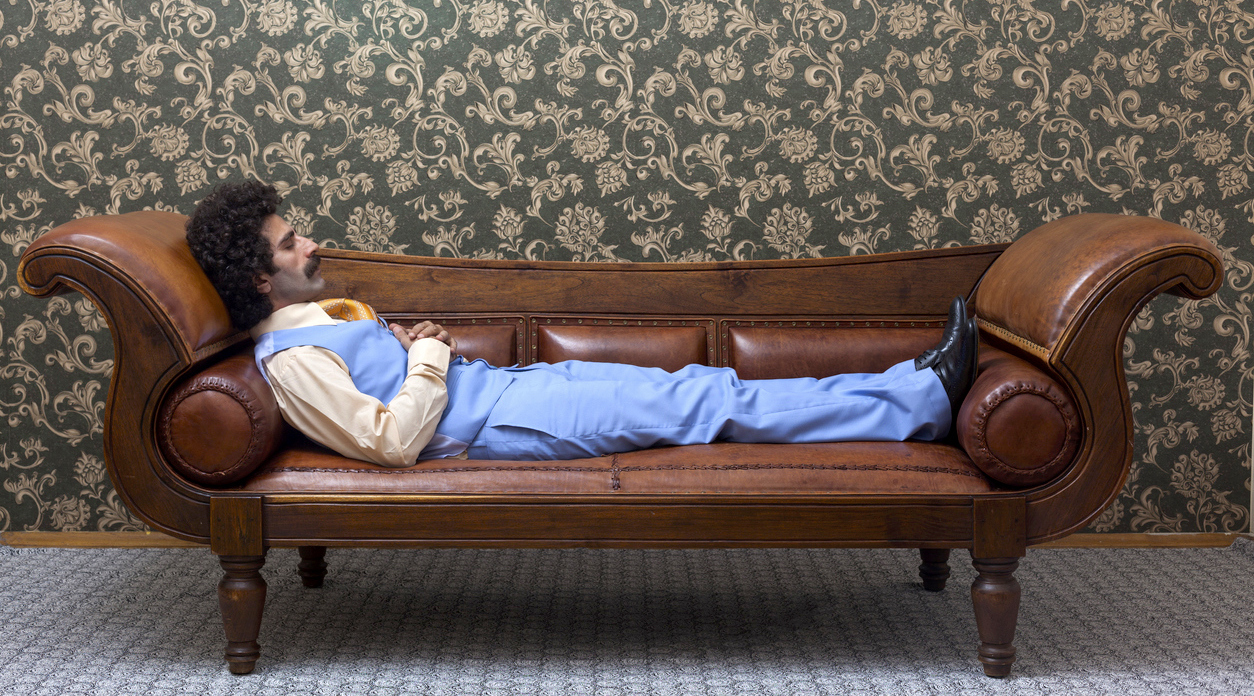In practically every respect, I’m a useless human being. This is not the vanity of false modesty – I really am worse than most people at most things. I’ve never picked up a musical instrument, a golf club or a foreign language; I can barely boil an egg and would find it almost impossible to paint a wall without stepping back and kicking two and a half litres of emulsion all over the carpet.
The course was not for me or anyone remotely like me. In fact, it was all a bit public sector
Yet I thought, in terms of life experience, that I’d make quite a good counsellor. I was one of five children with a father too sick to work. We lived on benefits, had free school meals and our clothes arrived in bin bags from the local church. It was a fairly bottom-rung start but I’ve since made a very decent living as a writer, including a stint doing some light counselling as an agony uncle for a women’s magazine. I’ve brought up two children and I’m still married to their mother. But more importantly, I wanted to help people. So when I signed up for an ‘Introduction to Counselling’ course, I was bursting with altruistic intent. Within minutes, however, all that enthusiasm had seeped out of me and I was visibly sagging in my seat.
The course was not for me or anyone remotely like me. In fact, it was all a bit public sector. The woman running it was perfectly nice but, as if reading from a script, the first thing she stressed was that the room we were in was a ‘safe space’ and that she would not tolerate racism, sexism or homophobia. Well, of course she wouldn’t. Any more than she’d tolerate murder, masturbation or playing the bagpipes. Why even say that? I could guess what was coming next and sure enough, it was something about ‘always respecting and never judging’.
It was then time to introduce ourselves. I have no wish to criticise the others in the class – they were good people with noble motives – but I did wonder whether some of them were properly equipped to assist those seeking emotional help and guidance.
Most seemed naive while others were clearly damaged, immediately talking about their own addiction and mental health issues. There were three or four whose first language was not English and one in particular struggled gamely just to make an introduction. There was a comedy moment when she said that, as a counsellor, she kept saying that she would ‘overlook’ the welfare of her clients when she meant ‘oversee’. I expected the moderator to gently correct her but of course she didn’t. All shall be respected; none shall be judged. And so it went on. And on. And on. I looked at my watch. It was 7.15 p.m. Three hours later, I looked at it again – it was 7.30. To accommodate its least able members, the pace of the class had slowed to a crawl.
The trouble was, I was at least 20 years older than anyone else and at a very different stage of my life. Put bluntly, I was in far more of a hurry. I wanted to work harder and faster. And given that this was just the introduction and full qualification would take about five years, I knew my career as a counsellor was over before it had even begun.
Now I know what you’re thinking; if I don’t even have the patience to sit through one class, how on earth would I have the patience to deal with vulnerable people who’d come to me for help? You may have a point but let’s not lose sight of a far more serious one: The BACP (British Association for Counselling & Psychotherapy) approved courses simply aren’t designed for older, wiser, more grounded candidates. So the very people who might have made good counsellors are lost to the profession forever.
Instead, the courses seem to attract younger, quite troubled people, some of whom were plainly at a loss with what to do with their lives. They’ve undergone therapy in the past and clearly want to carry on receiving it.
But counselling is too important to be entrusted to the wrong people. It’s often the first port of call for those experiencing anxiety, stress or depression. A good counsellor can help solve these problems before they spiral into something more serious. From what I saw, the candidates who enrol for these courses are not going to be up to the job.
In the UK, there is a worsening crisis with mental health – especially as lasting damage of lockdowns becomes more apparent – and that needs to be addressed. The first step might be for BACP to design a fast-track course aimed at older people. And there has to be more rigour. If there were stricter entry criteria, including a proper interview, counselling may start to appeal to the people it so obviously needs.
The best thing about a counselling course is that it is, in the original sense of the word, inclusive – anyone can enroll. The worst thing about it is that they do.





Comments